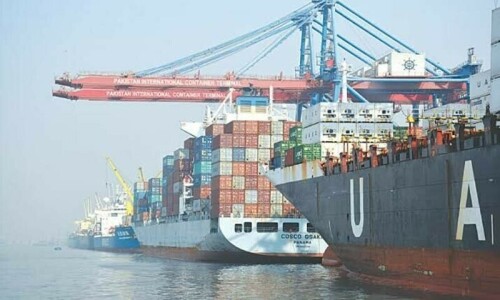THE future of the eurozone was off the agenda at this month’s EU summit — leaders had more pressing problems to deal with. But they nevertheless made an important statement in which they in effect ditched the completion of the banking union. This is big news.
Berlin made clear it would veto any proposals for a joint insurance of bank deposits, without which union is destined to remain an empty shell. My recent conversations in Berlin and Paris left me in no doubt that the German position is unrelenting.
Just before the summit, a draft declaration still included a vague reference to a common deposit insurance. Even that was too much for Berlin, and had to be taken out in the final declaration. Under ‘other items’ towards the end, the final declaration reads: “The process of completing the economic and monetary union must be taken forward in full respect of the single market and in an open and transparent manner.” The wording suggests leaders have nothing to say and do not agree.
They are scheduled to return to the future-of-the-euro debate in December but my expectations are not high. We are not in a phase in European politics where a big jump in integration is on the cards. Everybody is blocking one another. The Germans are blocking the deposit insurance, to the fury of the French. The east Europeans are blocking a share-out of refugees, to the anger of the Germans.
Berlin made clear it would veto any proposals for a joint insurance of bank deposits, without which union is destined to remain an empty shell. My recent conversations in Berlin and Paris left me in no doubt that the German position is unrelenting
It is time, therefore, to get used to the thought that neither the eurozone crisis, nor any other crisis for that matter, will bring about lasting institutional change. For sure, it brings about reports like the one written by the presidents of five EU institutions. They contain a few worthy discussion points. But the original design of a monetary union without a joint fiscal capacity is going to persist. The eurozone is, and will remain, a modern gold-standard type, fixed-exchange rate system.
You may at this point interject: how about the European Stability Mechanism and the banking union? Are they not for real? At least we now have a joint bank supervisor, a joint resolution fund and harmonised rules under which bondholders and depositors of insolvent banks can be ‘bailed in’. And the European Central Bank and the ESM can backstop the system in an emergency.
The ESM is for real but the banking union is not. I recall an exchange last year with a European MEP on precisely this subject. We agree more often than not on eurozone-related issues — but this time he expressed shock at my view that the banking union should be rejected in full. He said an imperfect banking union was a first step to a good one. My argument was that an imperfect banking union would stay imperfect forever. In the 1990s, advocates of the euro committed the same logical error in respect of the monetary union: it does not fix itself. If a genuine banking union is politically unattainable, we should have left responsibility with national authorities. At least somebody would have been in charge.
This brings me to a wider point about political integration, as raised by economist and author Philippe Legrain: that the last thing the EU needs is ever-closer union. What makes this anti-integration argument so intriguing is that its proponent is pro-European.
Mr Legrain’s argument is that the political integration on offer is of the wrong kind, and thus deserves to be rejected. It is not the Keynesian fiscal union, preferred in France in particular, but the German variety. When the Germans talk about fiscal union, they mean rule enforcement, not macroeconomic stabilisation, eurobonds, deposit insurance or fiscal backstops. I would agree with his overall conclusion — that if this is the kind of integration on offer, it is better simply to say no and stick with the present system.
A good example of why the present system may be preferable to a bad fiscal union is Italy’s 2016 budget. It includes a much higher deficit than would have been the case under a rigid enforcement of the various fiscal rules because the European Commission interprets the rules more flexibly than before.
This flexibility allows Italy to accompany its relative weak economic recovery with moderate fiscal expansion, which seems more or less appropriate. Under a German-style fiscal union regime, it would not have been able to do so.
The debate about the future of Europe and the eurozone thus forks out in more than two directions. It is not just about pro or anti, leave or stay, but about the kind and degree of integration we want. There is a multitude of options — and for now no minimalist consensus behind any of them.
Published in Dawn, Business & Finance weekly, October 26th , 2015
On a mobile phone? Get the Dawn Mobile App: Apple Store | Google Play














































Dear visitor, the comments section is undergoing an overhaul and will return soon.